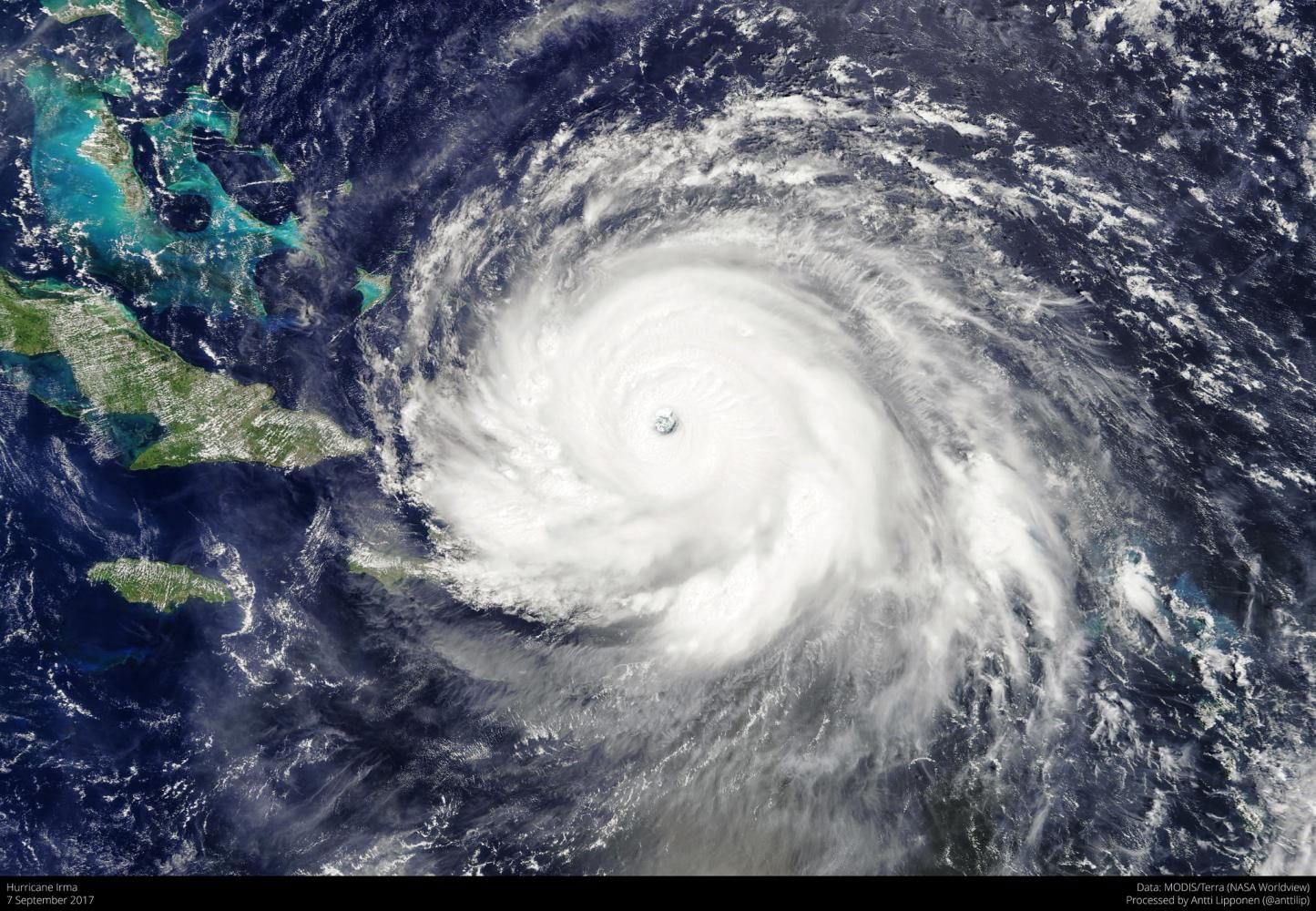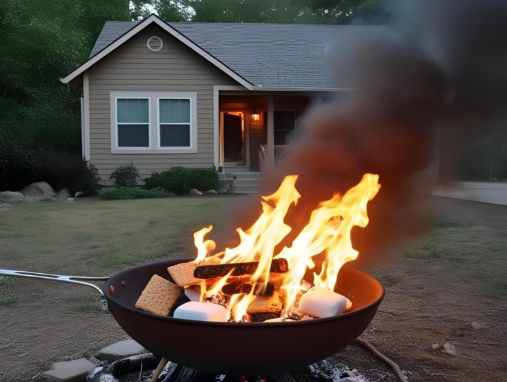A Global Concern
Climate change is something that impacts us all as a human race. If the events of recent past haven’t proven that, what will?
Photo by Flickr Creative Commons
Satellite image of Hurricane Irma in the Atlantic Ocean approaching the Virgin Islands and Florida Keys.
One of the most pressing issues in our world today, especially in recent news, is climate change. NASA defines climate change as any long-term change in Earth’s climate, including warming, cooling, and any changes beyond temperature. Although our planet has periodically experienced these changes for eons, the last 200 years since the Industrial Revolution have induced a rapid global warming effect on our planet. An infamous contributor to global warming is the greenhouse effect, in which gases such as carbon dioxide trap heat from escaping Earth. Correspondingly, it turns out human industrial activities have actually raised atmospheric carbon dioxide levels from 280 parts per million to 400 part per million in the last 150 years. Climate change is real, and we’ve already started to see the effects of it across the world. In the last few month alone, human society has truly experienced some of the most devastating effects of climate change to count.
At its peak, Hurricane Harvey was a Category 4 hurricane with winds that reached 130 mph. On August 25th, Harvey made landfall on Texas, being the first Category 4 to hit the United States since Hurricane Charley in 2004. As stated by a CNN report, the hurricane consisted of “force winds knocking down trees, power poles and signs, and with torrential rain deluging streets.” In the following days, cities including Lockport, Fulton, and Houston experienced copious flooding from the 40-52 inches of rainfall, flash floods, and storm surges. Thousands of people were forced to evacuate into cramped shelters as government forces such as FEMA moved in to help the trapped residents. According to a recent Newsweek report, Robert Hunter, director of insurance at the Consumer Federation of America, put the storm’s cost at $35 billion from flood damage alone, considering Houston as America’s fourth-largest city.
The very next week, Hurricane Irma catastrophically rolled over the Caribbean islands before veering upwards toward Florida. By September 15, Hurricane Irma had upgraded into a Category 5 hurricane with winds at 185 mph at its peak. According to a CNN article, “Anguilla, Barbuda, the British Virgin Islands, St. Martin / St. Maarten, the US Virgin Islands, and Turks and Caicos were hardest hit, with up to 99% of structures at least partly damaged.” Fresh water supplies were contaminated, infrastructure such as government buildings, schools, hospitals, and living areas were left uninhabitable, agricultural plantations were badly damaged, and hundreds of thousands were left homeless with minimal basic necessities. Although many may think of the Caribbean as a vacation spot, these islands are actually home to 40 million people who are now lacking basic supplies and won’t have power for months. In fact, for the first time in 300 years, not a single person is living on the island of Barbuda. With much of the Caribbean islands in ruins, it will take years to rebuild infrastructure and economy in the area. As for Florida, cities, especially those affected by storm surges along the coast, are slowly recovering as residents move back to survey the damage down by Irma.
All around the world, the effects of global warming and climate change can be seen. For the first time since 2010, there have been three hurricanes- Irma, Katia and Jose- simultaneously active in the Atlantic basin. A couple days ago, an earthquake of 8.1 magnitude struck southern Mexico, the strongest in a century for the country. These effects are not only limited to the Western Hemisphere either. This summer, the torrential rain from seasonal monsoon winds decimated South Asian countries, and more than 1,200 people have died as a result of the flooding. New York Times reported that at least 41 million people in Bangladesh, India and Nepal have been directly affected by both flooding and landslides resulting from the monsoon rains. Mumbai was forced to close down schools and businesses as the torrential rain drenched the financial capital. Even now, thousands of people are homeless and cramped under plastic tarps in hastily constructed camps- perfect conditions for diseases to spread rapidly. Additionally, a magnitude 6.5 earthquake in southwest China, combined with the landslides that followed, killed dozens in early August.
Climate change has manifested itself across the world, and sooner or later, all of us are going to have to accept it for what it is. Scientists are saying that the planet’s ice sheets are melting faster than any time in recorded history. In fact, just two months ago, a massive iceberg weighing more than 1 trillion metric tons broke off the Antarctic Peninsula. It’s not a coincidence that sixteen of the 17 warmest years on record have occurred since 2001 either. In the last few decades, we’ve seen more wildfires, droughts, flash floods, and other natural disasters than ever before. According to National Geographic, thermal expansion, melting glaciers and polar ice caps, and ice loss from Greenland and West Antarctica have caused the Global Mean Sea Level to rise by 4 to 8 inches in the past century alone. If this trend continues, hundreds of millions will be forced to relocate, including those living along the U.S. East Coast. Moreover, the effects of rising global temperatures have been observed in wildlife as well, including coral populations at the Great Barrier Reef and penguins in Antarctica.
Global warming is inflicting its wrath on Earth at an alarming rate, and we have to do something to curb it. Millions of people are currently confronting the devastation that climate change is capable of precipitating, and relief efforts just cannot efficiently tend to such huge numbers of people. We can’t keep reacting to these catastrophic disasters, we have to be proactive! The industrial needs of human society have contributed a huge portion to global warming, which in return has caused these devastating events to become more frequent. Now is the time for us to change our ways and give back to our home! There are so many ways we can reduce our individual carbon footprints, from reducing and reusing materials to utilizing more environmentally friendly transportation. The global community as a whole must work together to combat climate change, and international agreements such as the Paris Climate Accord are more important than ever in critical times like these. The coming steps we take towards this issue will truly define how we, as 21st century pioneers, will be commemorated in global history.







